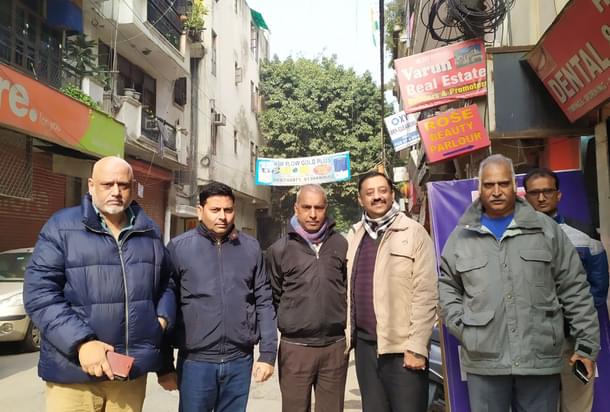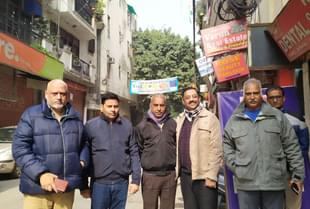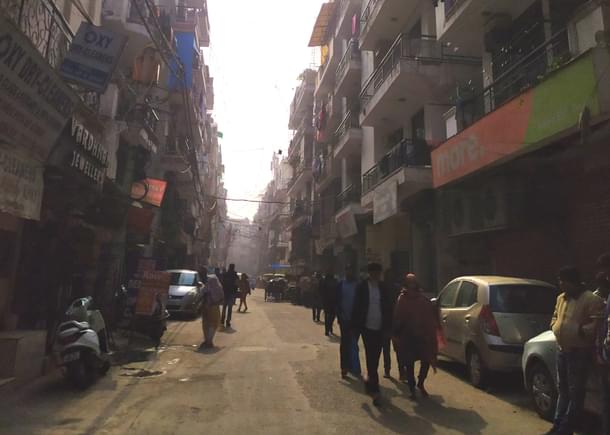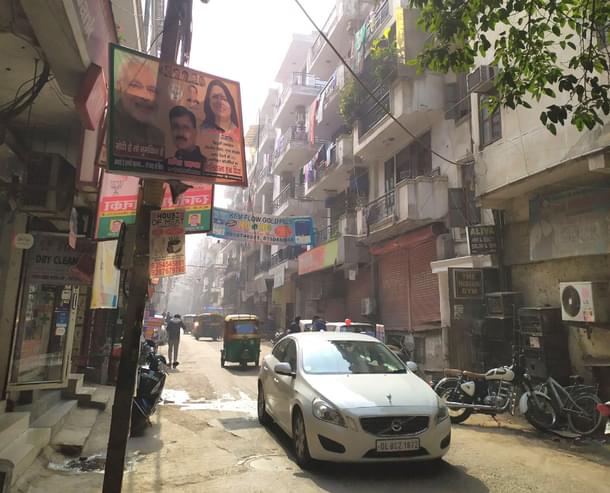Politics
Free From Stigma: What Changes For The Residents Of Delhi’s Unauthorised Colonies As Modi Government Regularises Them
Sumati Mehrishi
Dec 31, 2019, 12:50 PM | Updated 12:50 PM IST
Save & read from anywhere!
Bookmark stories for easy access on any device or the Swarajya app.


Three governments have changed during 20 years of their stay in New Delhi's Khirki Extension area. No one in this colony took politicians seriously. Until October this year, it was known as an ‘unauthorised colony’.
Around polls, local politicians would touch an emotional nerve of residents while making poll promises and mention that they would take steps towards changing the status of the colony, and help remove the tag of ‘unauthorised’.
The residents would not take promises made by politicians too seriously. Among them is Rajbal Singh, who had shifted from a village in west Noida to Khirki Extension 20 years ago. Even this year, around Lok Sabha elections, a similar buzz from politicians reached his ear. Singh smirked it off.
Singh adds, "MLAs would talk about it, MPs would talk about it, and then the matter of ownership rights to residents would be forgotten."
Whenever the pitch for giving ownership rights to residents of unauthorised colonies grew louder, especially around polls during the six years, Singh would shrug it off as mostly the issue remaining unaddressed until the arrival of the next poll.
He says, "we would look at it as just another and a repeated 'voting stand' from the politicians visiting the area. We had become used to the muddle, confusions and problems surrounding the status of Khirki Extension as a 'kutchi' (unauthorised colony). Sab bolke chhor dete the (the politicians would bring it up and leave it unaddressed). I appreciate the stand taken by the Centre."
Change arrived, finally, in October 2019. The Union Cabinet approved a proposal to give ownership rights to nearly 40 lakh residents in Delhi. This emotional watermark in his life came a few days before Diwali. Singh might take politicians seriously.
On 4 December, a bill seeking to provide legal framework towards granting ownership rights to people in Delhi's unauthorised colonies was passed in Parliament. Power of attorney, agreement of sale, will/possession letter — these documents would finally help Singh find a basis to ownership of his flat.
During his speech at Ramlila Maidan, Prime Minister Narendra Modi made it a point to announce that the Centre had done what so many other governments could not. Modi consciously kept the achievement of regularising of 1,731 unauthorised colonies under spotlight in a large chunk of his speech.
Knowing that the subject touched the emotional nerve, Bharatiya Janata Party's (BJP’s) posters depicted the message of celebration — calling people to Modi's speech in Ramlila Maidan.
Modi's announcement from Ramlila Maidan meant that Singh, finally, would have his mind at ease. He will now have ownership rights to the ‘builder flat’ he had bought with the sense of giving his family shelter 20 years.

At one of the shops in the colony, Singh, along with other residents of the colony, makes a list of documents required for the registration process.
A help desk organised by local BJP leader to assist residents accessing and using the portal set up by the Delhi Development Authority (DDA) for the completion of the registration process would pave the way for ownership.
Living in an unauthorised colony had its own dismal perks. It meant that the residents would be left to fend for themselves when it came to basics like fixing drainage and roads.
The pathetic drainage situation once showed up when Neeraj Chopra, another resident, had to host guests from an influential family from a posh Delhi locality some years ago. He saw human excreta flowing in the drain. He realised that it was a challenge to live that way, and it was a challenge to even have guests over.
With abysmal interest from local authorities in initiating vital infrastructural issues from their colony, Chopra and his neighbours had no choice but to take up work related to drainage and the construction of an arterial road as personal responsibility.
He says, "one has to understand that the families here were mostly middle class people who chose to be here owing to connectivity, the presence of schools, and access to public transport and other facilities. People chose to buy flats and live here because housing in authorised colonies and posh areas were sheerly unaffordable."
The highlight was getting a transformer set up for the colony. "Next. IGL connection is on its way," he adds.
Another resident, Dr Vishal Bahari, believes that due to the efforts of residents such as Chopra, they have been able to overcome a bunch of negative experiences of living in an ‘unauthorised’ colony.

The label ‘unauthorised’ for their colony brought with it several uncomfortable experiences. Dr Bahari says, "people of the next locality, Malvia Nagar, decided to shut the colony gates for security reasons early in the evening."
This would cut off access of Khirki Extension residents to Malvia Nagar and connecting roads to three major roads in three different directions outside the locality. This meant that there was a creeping lack of trust in the way residents from Malvia Nagar viewed them.
He adds, "that hurt me. This was the attitude of people in the next locality towards us. Now, I feel content."
Dr Bahari is one of the 40 lakh-odd people to have benefitted from the step from the Centre. He points out that the lackadaisical attitude towards the residents of Khirki Extension — despite the fact that they were living in New Delhi, should now change.
He adds, "local authorities would take us and our honesty as citizens for granted. I once received a notice for not paying my house tax between 2004 and 2012 when I had been paying it regularly and honestly. I showed up before the authorities with all the necessary receipts and papers."
He states that with the residents getting ownership rights, cases of non-payment of bills, which were dished out to wrong addresses due to confusion on the pin code and other reasons, would hopefully be looked at by local authorities.
Suraj Chauhan, a politician from BJP, is helping mobilise efforts for registration help desks in the area. According to him, the move by the Centre will go towards empowering residents and will erase weak points in the system that allowed corruption.
He says, "people who came to Delhi from outside to start lives here have been fooled for very long. The step of regularisation will help them find homes and build a better urban living environment in the colonies. Law and order is bound to improve in these areas."
Chopra's next task is to look at areas that need improvement in the colony. Looking back at the years spent living in the ‘unauthorised colony’, he says, "we came here for growth, to shape the future of our kids, am finally happy for them."
Dr Bahari seemed thoroughly excited for the registration process. According to him, the house owner, his wife, is feeling the most empowered. "Asli maalik to wo hain."
The BJP is looking at the move by the Centre as a powerful factor in the upcoming Delhi Assembly polls. As of now, Modi's step surely seems to have empowered women yet again, but more importantly, it might shape some important aspects of town planning that have been partly in shambles so far.
Sumati Mehrishi is Senior Editor, Swarajya. She tweets at @sumati_mehrishi





